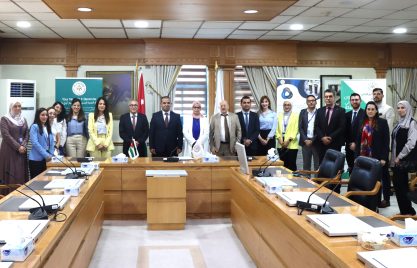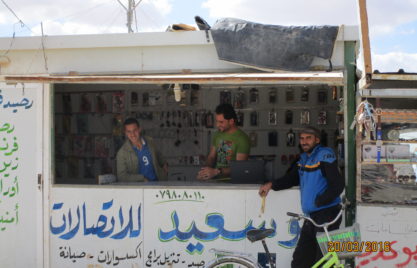High-ranking government officials and financial sector executives from the region elaborated on the links between financial inclusion and financial and social stability at a regional bankers’ conference in Amman. From October 18-19, the event attracted around 200 representatives from the region and gave stage for a GIZ-supported review of the balance between financial inclusion and de-risking tendencies in times of increasing illicit financial activity.
The Governor of the CBJ, H.E. Dr. Ziad Fariz, and Jordan’s Deputy Prime Minister, H.E. Jawad Anani, commenced the conference on ‘Financial Inclusion: Towards Strategic Financial & Social Stability’ organized by the Union of Arab Banks, the Council of Arab Economic Unity, and the Association of Banks in Jordan.
Highlighting that “after 700 years have passed since the first bank’s establishment, two billion people worldwide are still outside the formal financial system,” the CBJ Governor stressed the importance of financial inclusion of women, the youth bulge, refugees and SMEs. Advocating for financial inclusion as a catalyst for sustainable development, economic growth, employment, improved welfare, and social stability, he emphasized the crucial roles that governments and the sector play in promoting appropriate financial services for all in Jordan and the Arab world at large. Following up on this, multifaceted sessions shed light on the role of Central Banks and Banking Associations, responsible finance, SME finance, and Islamic banking in the light of an increasing number of governmental actions in financial inclusion in the region.

Thomas Rahn from the GIZ MFMR Programme took stage to elaborate on the balance between de-risking policies in the sector and upcoming national financial inclusion objectives in the Arab World. Mr. Rahn stated that “we need more financial inclusion, not less, if you look at the numbers of illicit financial flows in the Arab region”, pointing to the fact that half of illicit financial flows in the MENA is done in cash, thus off any books and supervisory radar, and that this share tends to grow. By means of ‘big data’ mechanisms, financial inclusion, particularly in the digital sphere, holds promise to monitor suspicious financial flows and identify black sheep. Mr. Rahn concluded that “cash-based, informal business is not a solution,” which is why financial regulators need the banks to do business with more people including from the bottom-of-the-pyramid for more effective prevention and detection of money laundering and terrorism financing.
Among the key messages and valuable insights provided by high-level officials to leading practitioners, it became clear that regulatory authorities and financial institutions are natural allies. They will have to keep up knowledge exchange, collaboration and synergizing their efforts – a mission that GIZ and the MFMR programme particularly are supporting on both the regional and national level.
by Atilla Kaiser-Yuecel



